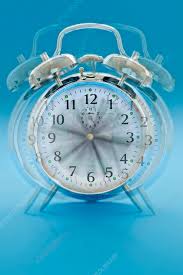Are you considering a bedwetting alarm for your child or teenager?
Even though there are no side effects and medical hypnosis can be empowering for patients, the 2 most common treatments for bedwetting are still the bedwetting alarm and medication. Unfortunately, problems with the bedwetting alarm can be alarming.
There are several problems with the bedwetting alarm:
- It can take several months for it to work. If it hasn’t worked by 6 weeks, it’s unlikely to be effective. SIX WEEKS IS AN AWFULLY LONG TIME FOR A CHILD OR TEEN TO WAIT TO BE DRY! And, when youngsters go through this process every night, for several weeks in a row, with no improvement, they feel helpless and hopeless, and become discouraged. And with good reason!
- When it works, it only helps 2/3 of patients. And when it is discontinued, ½ of them start having accidents again.
- It does not teach people how to be dry at night. It does not help them re-program their brain to communicate with their bladder so that they can control the problem.
- It often wakes everyone else in the family without waking the patient!
As you can see, the bedwetting alarm can be alarming.
The parents of virtually every patient I treat tell me that their child is “such a deep sleeper” and I believe them. An interesting study was done in which boys with and without bedwetting were studied. (Bedwetting is statistically more common in boys.) While these boys were asleep, the researchers made a very loud noise. It turned out that the boys who were dry at night woke up more easily than the ones with bedwetting.
Although this was an interesting report, it is a bit misleading because they measured an EXTERNAL stimulus in the form of a noise. What is really more important, though, is how the INTERNAL signals from the bladder interact with the brain to wake individuals up at night.
This is the beauty of using medical hypnosis to help patients. Patients learn to create an empowering experience, in their minds, that allows them to realize that they’re able to do something they previously didn’t know they could do. In this case, it’s teaching them how to have their brain and bladder talk with each other during the night the same way they do during the day.
Once they’ve learned how to stay dry without a bedwetting alarm, they need to practice, because it’s like any other skill that needs to be learned and practiced.
Just like kicking a soccer ball, or playing the piano:
The more you practice, the easier it gets.
The more you practice, the better you get at it.
And the more you practice, the faster you get at it.
Hypnosis leads to automaticity. That’s right… patients learn how to do this automatically, without even thinking about it.
You can remember a time when you were learning a new skill. Perhaps it was riding a bicycle, or playing the piano. And it was difficult at first. And, the more you practiced, the better you got at it.
The same applies to learning how to teach your brain to talk with your bladder so that you will be dry every night.
You need to practice!
Professional athletes don’t just go to the stadium, or field, or arena on “game day!” They practice in between matches so that when it is time to compete, they will be able to do so automatically, without even thinking about it.
Click here to start Keeping the Bed Dry® today.
To learn about other conditions that can be treated with medical hypnosis, please visit jefflazarusmd.com.







